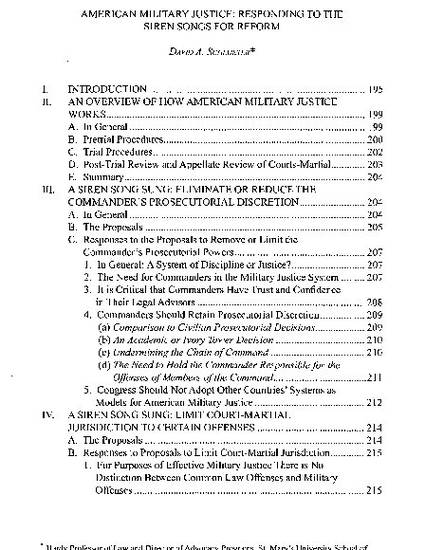
Today, the American military justice system is being subjected to sweet and enticing calls for reform. At first hearing, the well-intentioned proposed reforms appeal to a sense of justice. On closer examination, however, those proposed reforms threaten the essence and functionality of an effective and efficient system of criminal justice that is applied in world-wide settings, in both peacetime and in war.
In the last several decades, an increasing number of commentators have recommended reforms to virtually every component of the military system. The most recent round of proposals arose from frustration and anger that many feel towards the military’s initial response to what appeared to be systemic problems in dealing with sexual assault cases. That anger is understandable, and lethargic responses to that problem are indefensible.
However, critical analysis of the proposed reforms to the military justice system reveals that many, if not most, should be rejected, either in whole or in part. The answer to the problem does not rest in removing or reducing the commander’s roles, pretrial or post-trial, or in limiting court-martial jurisdiction.
It is absolutely essential that commanders be vested with the authority and responsibility for maintaining good order and discipline within their command. Therefore, if Congress is to make any changes to the Uniform Code of Military Justice, it should be to, first, reaffirm the view that the primary purpose of the military justice system is to enforce that good order and discipline and, second, retain the commander’s critical role in that system without limitation.
